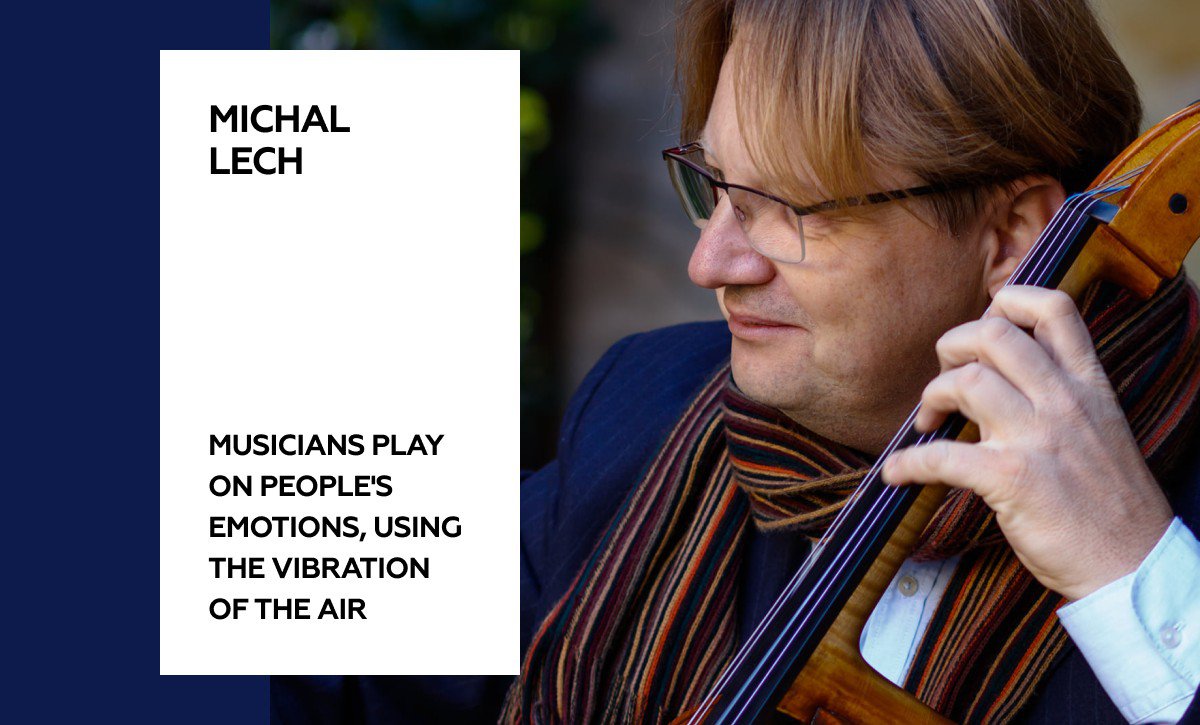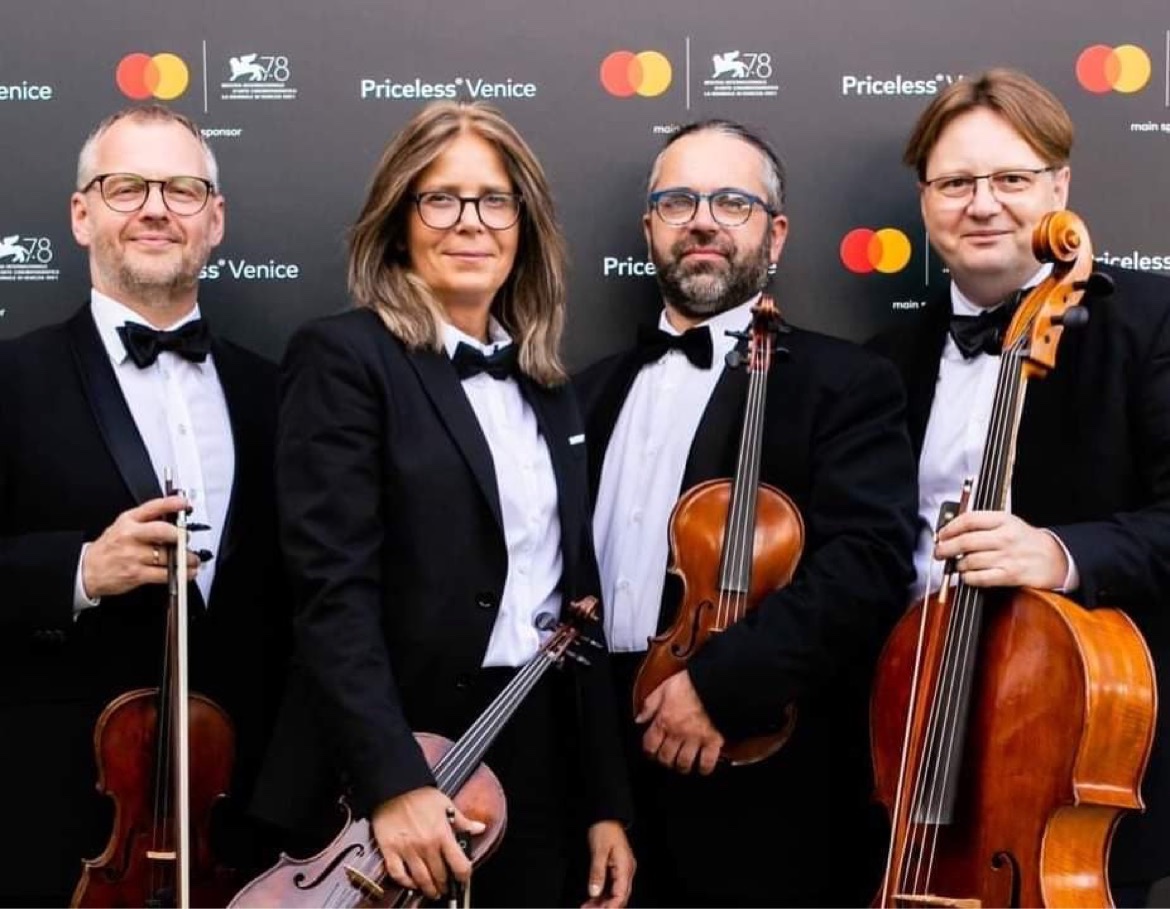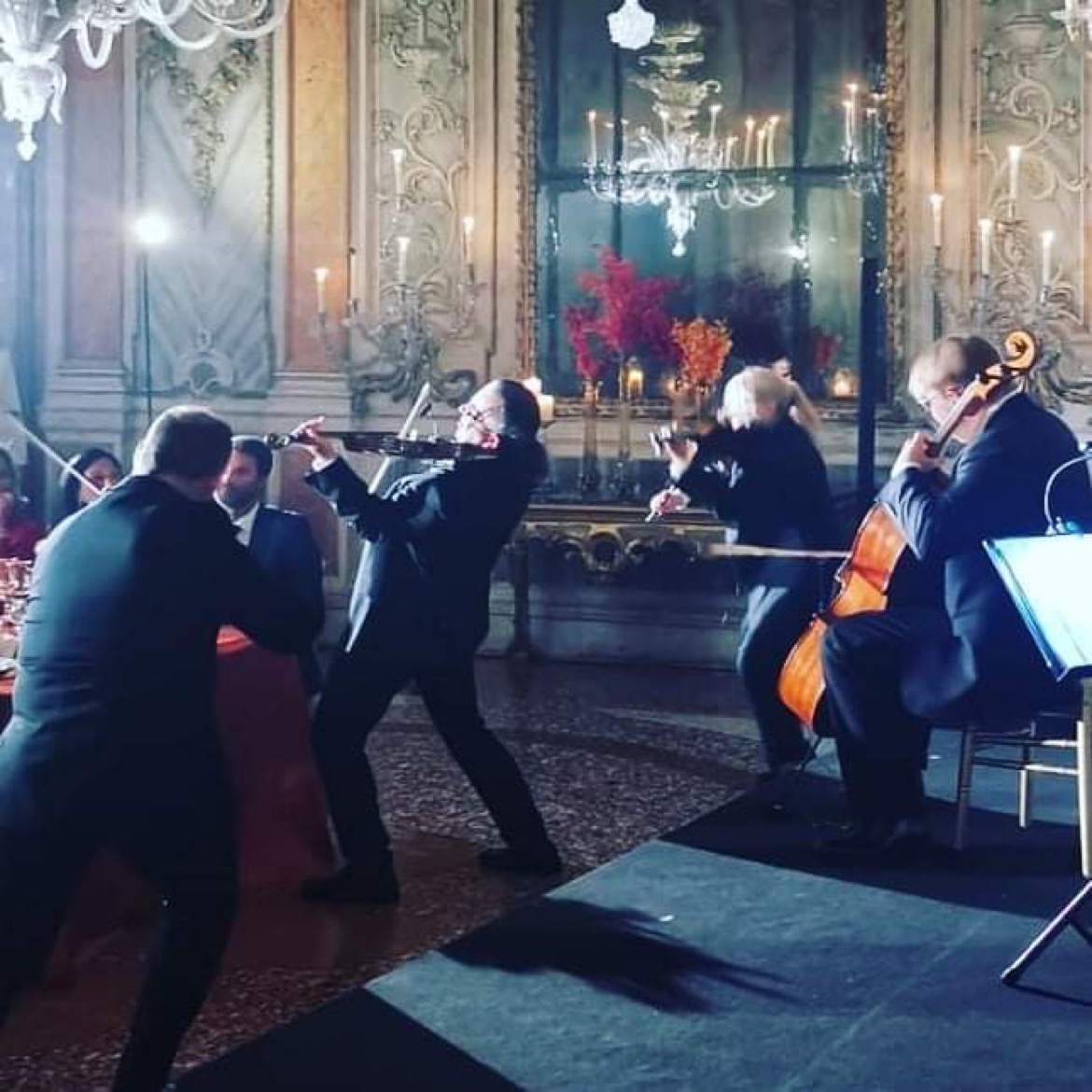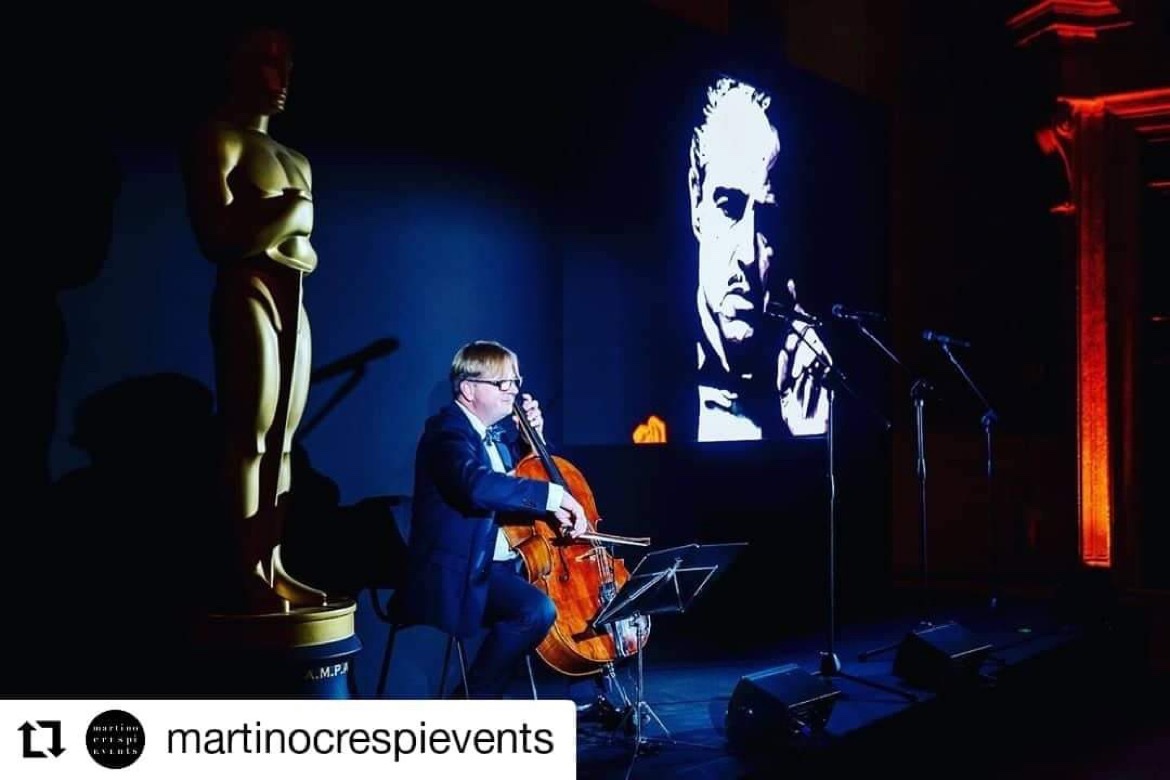
An interview with Michal Lech, a cellist from Poland and the founder of the Altra Volta String Quartet, who successfully concerts around the world and whom I dearly admire.
Dear Michal, I would like us to cover so many topics… Thus, I suggest we start with practical aspects, gradually moving on to more abstract ones.
Considering the vast list of performances by the Altra Volta String Quartet, one may conclude that you have definitely mastered the art of monetization. It is generally believed that artists ought to sacrifice their comfort in the name of art, but you broke the pattern. Hence, could you give some advice to musicians on how to follow their artistic fervor and, at the same time, earn money wisely?
I'm certainly not a businessman, but I try to keep up with the tendencies of our Zeitgeist. If you want to hold all the ropes in your hands, it’s crucial to understand how the 21st century works. First of all, I would suggest musicians to start mastering the Internet. I understand YouTube and Google, while also working for some companies helping them with promotion.
Any other secrets for monetizing art?
Monetization is always a problem, especially for art and especially for music. Even though streaming is quite popular nowadays, it's actually, in most of the cases, a disguised rip-off. The bulk of the money goes to investors, not to the musicians. You can have millions of views and only get a few pounds in return. Though, gaining millions of views is terrible work. In general, big companies steal from the artists, even though they pretend to work for them. Google and YouTube, in particular, are the only companies that, in my opinion, share something with the artist. I find Youtube to be most democratic - if you are interesting enough to people, you gain views and you make some money.
Youtube is a good platform for monetization indeed. What else?
There's another useful platform, Fiverr.com – where artists can share their art as freelancers. For example, someone may ask me, as a cellist, to record parts of a musical piece and pay for this service. Fiverr helps you collaborate with people all over the world, from the Philippines to Australia. You never know who might need your services. Aside from that, I've also heard about Patreon, although I don't use it.
By the way, how did you start performing at Martino Crespi's events?
It happened five years ago when his wife heard me playing the cello. They were actually looking for a cellist to play at a film festival and invited me. I played a little concerto of five pieces. They liked it and hired me for bigger projects. After a while, I became part of Martino’s team named Aria Music Project. Among the members are fantastic Italian musicians, as Simona Rais – soprano, Stefano Serafini – trumpeter, Enrico Pesce – pianist, and me, a cellist. In the third year of our collaboration, Martino invited me with my string quartet to Italy. During the pandemic we were still working together. Martino produced an album “ARIA – a tribute to cinema”, which contains a selection of 17 pieces from legendary movies like Cinema Paradiso, Gladiator and the Schindler List. Me and my quartet had the big honor to be a part of this recording. The time of the production and also the edition was extremely special to everyone. This explains why the emotions recorded on the CD are so deep and unique. The music captured in this recording makes us start dreaming again.
Is Martino Crespi the one who organizes the MasterCard events?
Exactly. He does almost everything for MasterCard Italia, as well as for Bulgari and many other great companies. For instance, some months ago we had a concert for Bulgari at the Alpemare. Alpemare is Andrea Bocelli's private club. Bocelli, Veronica, his wife, and his children were at the table. It was an honor to play for Andrea. Then he started singing his song "Canto de la terra" with us. We had a great time. Actually, I forgot to post some pictures…

Speaking of that, Michal, I wonder: what's the difference between performing on stage, in a concert hall, compared to a private dinner with Andrea Bocelli. How do you feel in each of these hypostases, and how do they differ?
The most important thing in each concert is focusing on the music. That is imperative. I try not to think too much about other things... until the end. Of course it's a great pleasure to play for the creators themselves. For example, during an event a few months ago I played for Giuseppe Tornatore and Ennio Morricone's two sons. In fact, I played one of Morricone's most beautiful pieces - Gabriel's Oboe - a cello and piano solo. I almost cried when I played it for Morricone's children. It was a very, very special moment. I don't know if you can extract anything from my torrent of memories...
Please continue, that's the most interesting part. What other emotional performances have stayed in your heart?
This was the Oscar night at the Palazzo Barberini in Rome. There were a lot of high-profile guests, like the CEO of the Hollywood Film Academy, the beautiful actress Monica Bellucci, Giuseppe Tornatore, Kasia Smutniak, Valeria Giolino…
Oh, I’m jealous)…How’s Monica in person? : )
Haha… I haven't met her, but I was lucky enough to meet Tornatore. So I opened the concert performing "The Godfather". It was a surprise for the guests, because nobody knew that there was going to be a concert. It was incredibly exciting. You know, I've dreamed about Hollywood many, many times myself. Obviously, I didn't make it to Hollywood, but Hollywood came to Rome, and we met there. And it was super fun.
.jpg)

Besides, what’s your overall attitude towards private concerts? I suppose private events are totally different from the public ones.
You know, everything is relative. My glasses are heavily rose-tinted. I don't judge in terms of what's better or worse. For me, every performance is unique. Recently, I played at a private party for some famous Russians here in Venice. And it was just as great as if I were playing at the National Philharmonic in Warsaw. You know, every encounter with music is unique and beautiful. I really love it.
What’s the audience you connect with the most?
Almost any audience. But, okay, I'll admit honestly - there is an audience I don't love, and no musician does. No musician likes bankers and lawyers. That's a really difficult audience.
Why is that…?
They don’t seem interested in art and can hardly catch any emotions. It's nice to play for people who have some emotion. At least some… Playing for bankers is like playing for the walls. It happened to me so many times that it is absolutely the rule.
Thus, in order to feel music, one needs a developed emotional side…
Exactly. The important questions are: What is music? Why do musicians play music? And what does it do, after all? Actually, musicians play on people's emotions, using the vibration of the air. And in order to play on people's emotions, these people should have some emotions to play with. They need to understand the language of music, have appropriate receptors, and be open. It's different when the bankers meet. The only thing they think about is business.
That's where music is reduced to background noise... But beyond the role of emotion, I wonder how you determine the role of the mind - or more specifically, musical literacy. Does one have to be musically educated to understand classical music?
Yes and no. Musically educated people hear music very differently. Musicians who play instruments focus more on certain details - harmony, intonation, or the part of the instrument they play. Thus, they often lack a holistic appreciation. The musician just thinks, "Oh, this guy could have played that part better." It’s more about judging. Being a musician is hard work because you are judging yourself on every note. When you're a musician, it's very hard to just close your eyes and enjoy the music. You're continuously judging yourself millions of times per minute.
Narrowed perception is the curse of specialization...
Exactly. I've noticed that musically unprepared people are more inclined to perceive music holistically. They perceive the whole picture. Of course, this is not a universal rule. For example, when a person sees a Rembrandt painting for the first time, he perceives it quite differently from a specialist who knows everything about the painting. Or, if you are a dentist, you judge the teeth of every person you talk with and see cavities everywhere. If you are a cook, you are just interested in assessing the restaurants and you know about food more than typical people do. Undoubtedly, musicians can hear things that others can't. However, understanding music also depends on many other factors: your character, mood, physical condition, etc.
We've dealt with the audience, but I would also like to touch on the aspects of being a musician: the profession of a musician is much like the profession of an actor - it involves expressing emotions. Since your passion became your profession, I suppose one inevitably reaches a point of emotional exhaustion, playing music on autopilot. How do you maintain your emotions alive?
Actually, playing without passion doesn't make any sense. Everything has to go from the heart to the heart. However, sometimes people play as if they have some emotion inside, but there is absolutely nothing interesting about it. Some don't care about the emotions of others. Like I said, music is about playing with other people's emotions. To do that - a musician has to understand what other people may be feeling and guide them. For example, the words ‘I love you’ seem to have a direct meaning, but they can be said in very different ways. The same words can have antithetical meanings. It's the same with music. The musician has to understand what he himself wants, what his audience wants to feel, and how to achieve that effect. Then you must use all of your skills, knowledge, and heart to achieve it. That's when the audience will feel the way they want to feel. Furthermore, the composer's ego comes into play, which is greater than the musician's ego. Here you have to understand the composer's language and play it in a way that touches the audience. It’s quite a complex mix.
And how do you know what kind of emotions the audience wants to experience?
Think about people going to a comedy show - they're going to experience a palette of positive emotions. If people go to a church to hear Mozart's Requiem, they're tuned in to other emotions. The musician has to be in the same room with the composer, channeling the audience's emotions the way the composer wants them to. It is magic.
Please continue... I'm fascinated.
And everybody comes with different emotions, which is something a musician has to consider. It is good to catch everyone, warm them up and invite them for a dance. A good dancing partner is one who doesn't push you, but simply asks for your hand and leads you to the emotion you want to experience. Same goes for music. In this respect, a musician is like a dancer. He asks for everyone's hand and leads them to enjoy the moment together.
Last question: I looked up the meaning of "Altra Volta", which seems to be an Italian term that means - "once again". Why did you choose this name for your string quartet?
My wife, Ola, chose it 23 years ago just before one of our first concerts. We had to find a name very quickly. Ola had an Italian music dictionary, and this word was at the beginning of the dictionary for musicians. It sounded good, so that's what we called our ship.












